4 min. read
6 Communities In Amsterdam That Will Help You Learn To Code
Thinking about a career change?
So you are a woman who wants to learn how to code. What is stopping you? Put off by the idea of learning in a male-dominated space? Don’t have the means to fund an expensive qualification or intensive course?
Well these excuses are now null and void as Xena has done the leg-work and spotlighted six organisations in Amsterdam that are women-focused and completely free. You are welcome.
For those right at the start of their coding career, VHTO focuses on education and research-based intervention at primary and secondary schools. The Access Hub also focuses on people taking their first step into the tech sector. If you are slightly further along in your career, Women in Quantum Development or PyLadies may be the communities for you. For those interested in code and looking to explore its potentials, She Sharp or Girl Code run talks and events teeming with information, directed at women and under-represented demographics.
These organisations are doing the work to close the gender gap in tech through inspiring, educating and supporting women at all stages of life. Their means are as diverse as their membership but one thing they all have in common? They all want you.
What’s your excuse now?

For: People at the start of their careers
The clue here is in the name. The Access Hub wants to give everyone the opportunity to access the ever-growing tech sector. After all, that is where it starts.
With diversity as its focus, TAH works towards its goals by equipping people with skills, connecting them to opportunities, and empowering them to use technology for social innovation through a range of workshops.
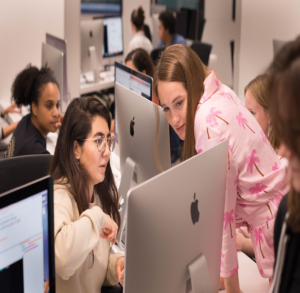
For: Coders and anyone interested in code
Girl Code aims to raise awareness of the gender gap in tech which starts at school and carries on through every stage of girls’ and women’s lives. Not great, huh?
To counter this, they hope to inspire more women to get into coding with regular talks on topics such as NPM, quality of code, and game development.
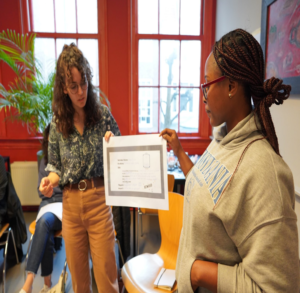
For: Women in the field of quantum computing
If it’s quantum computing that takes your fancy then this is the network for you. WIQD (pronounced “wicked”) plans to address the lack of women in the field of quantum computing by providing a support network of women peers to positively impact the retention of women in the field.
Organizing events at multiple points during the year, members have the opportunity to discuss science, foster new connections, and feel inspired. They also run a mentoring program to help make connections between different generations of women active in quantum development.
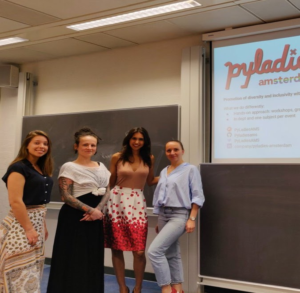
For: Python programmers
Taking a practical approach, PyLadies act on diversity in technology by bringing things back to basics and introducing real coding back into tech meetups. Tailored by level and topic, Python programmers can get stuck in and help peers to write cleaner and better code and effectively share knowledge. Everyone’s a winner.
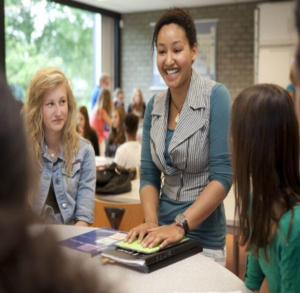
For: Primary and secondary schools
With a focus on education and research-based interventions, VHTO has been encouraging the participation of women and girls in the world of Science, Technology, Engineering and Mathematics (STEM) since the early 1980s.The real OGs..
In the Netherlands, coding is currently not yet part of the education curriculum (boo). However, VHTO helps support girls by organizing guest lectures in secondary schools and selecting role models for speed-dates, work shadowing, and mentoring to fill this gap.
Alongside these measures, VHTO has developed a gender scan to map the opportunities for optimising policy and activities regarding gender and STEM.
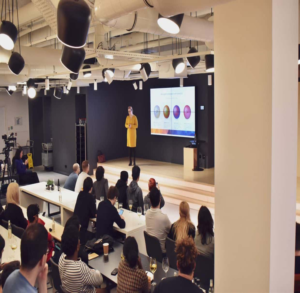
For: Under-represented demographics
A non-profit foundation, SheSharp (or S#eSharp) focuses on diversity and inclusion in technology and entrepreneurship. By providing a safe and open community, those from under-represented demographics have space to explore their interests and potentials.
These events can vary from public talks, panels, interviews, or workshops that cover data science, cloud computing, machine learning, blockchain, frontend development and more.
If this list doesn’t inspire you, we don’t know what will.
